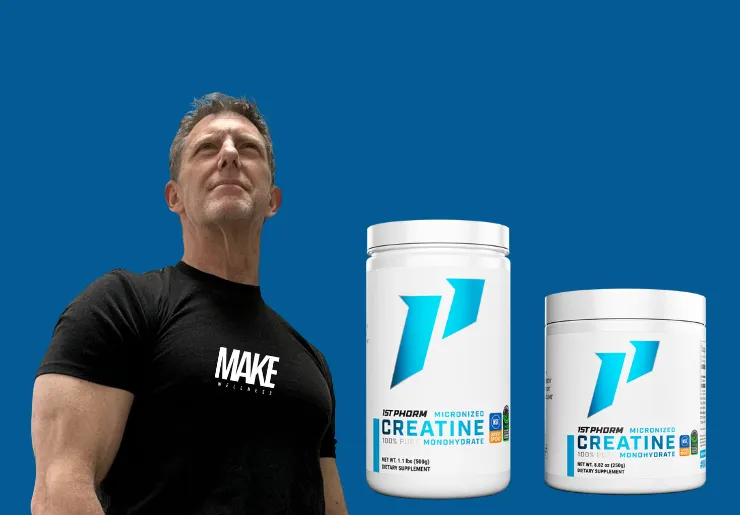
Creatine Supplement Guide

Creatine Supplement Guide: Benefits, Side Effects, and How to Use Creatine for Muscle Growth
Creatine is one of the most popular and researched supplements in the fitness world, known for its ability to enhance muscle growth, strength, and exercise performance. Whether you’re a seasoned athlete or just starting your fitness journey, understanding what creatine is and how it works can help you make informed decisions about your supplementation routine.
What Is Creatine?
Creatine is a naturally occurring amino acid found in your muscles and brain. Your body produces creatine in the liver, pancreas, and kidneys, but you can also get it from protein-rich foods like red meat and seafood. In muscles, creatine is stored as phosphocreatine, which helps produce adenosine triphosphate (ATP)—the primary energy source for high-intensity activities.
How Does Creatine Work?
During intense exercise, your muscles use ATP for quick energy. Supplementing with creatine increases your muscles’ phosphocreatine stores, allowing you to regenerate ATP more rapidly. This means you can push harder during short bursts of activity such as weightlifting, sprinting, or HIIT workouts, leading to improved performance and muscle gains.
Benefits of Creatine Supplementation
Increases Muscle Strength and Power: Creatine is well-known for boosting strength and power, making it ideal for athletes and gym enthusiasts focused on resistance training and explosive movements.
Enhances Muscle Growth: By enabling you to train harder and recover faster, creatine supports greater muscle hypertrophy over time.
Improves Recovery: Creatine may help reduce muscle damage and inflammation, speeding up recovery after intense exercise.
Supports Brain Health: Emerging research suggests creatine may benefit cognitive function and neurological health, though more studies are needed.
Hydration and Muscle Volume: Creatine draws water into muscle cells, increasing muscle fullness and potentially reducing the risk of dehydration and cramps.
Types of Creatine Supplements
Creatine Monohydrate: The most studied and effective form; highly recommended for most users.
Other Forms: Creatine ethyl ester, hydrochloride, and buffered creatine are available, but research does not show significant advantages over monohydrate.
How to Use Creatine
Dosage: A common approach is a loading phase of 20 grams per day (split into 4 doses) for 5-7 days, followed by a maintenance dose of 3-5 grams per day. Alternatively, you can skip the loading phase and take 3-5 grams daily.
Timing: Creatine can be taken at any time, but some evidence suggests post-workout consumption may offer slight benefits.
Mixing: Creatine dissolves best in warm water or mixed into shakes. Stay hydrated, as creatine increases water retention in muscles.
Potential Side Effects and Safety
Creatine is generally safe for healthy adults when used as directed. Common side effects include:
Water retention and weight gain
Mild stomach discomfort or diarrhea (usually with excessive doses)
Muscle cramps or strains (rare)
Creatine is not recommended for individuals with kidney or liver disease, children under 18, or pregnant/nursing women. If you have any medical conditions or take medications affecting kidney function, consult your healthcare provider before starting creatine.
Frequently Asked Questions
Is creatine a steroid?
No, creatine is not a steroid. It is a legal, naturally occurring compound and is permitted by most sports organizations.
Will you lose muscle if you stop taking creatine?
You may lose some water weight, but muscle built through training will remain, provided you continue exercising and eating well.
Does creatine work for endurance sports?
Creatine’s main benefits are for high-intensity, short-duration activities. It is less effective for endurance sports like long-distance running.
Conclusion
Creatine is a safe, effective supplement for boosting muscle strength, power, and growth. By understanding its benefits, proper usage, and potential side effects, you can decide if creatine fits your fitness goals. Always consult a healthcare professional before starting any new supplement, especially if you have underlying health conditions.

For more fitness tips and supplement guides, follow our blog and stay updated on the latest in health and wellness!
